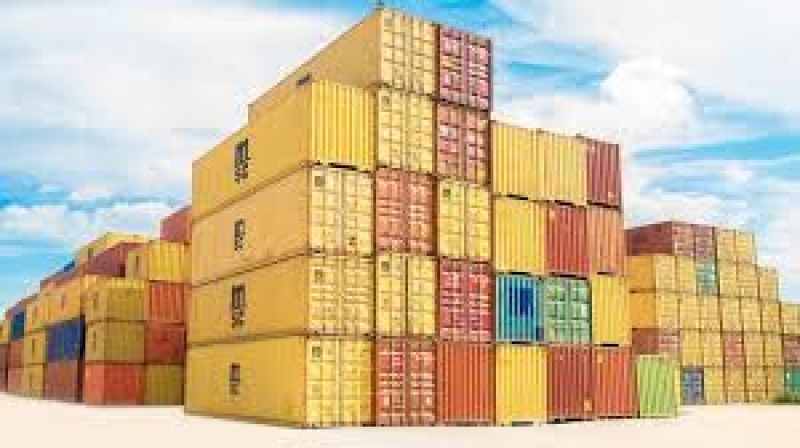News update
- US Issues Travel Alert for Bangladesh Ahead of Election |
- Air ambulance carrying bullet-hit Hadi flies for Singapore |
- Can Dhaka’s arms recovery drive ensure peaceful polls? |
- ‘Unhealthy’ air quality recorded in Dhaka Monday morning |
- BD peacekeepers' deaths: UN chief calls Dr. Yunus, offers condolence |
Transshipment Cancellation Won't Impact Exports: Experts
Special Correspondent:
Trade
2025-04-10, 7:51pm

The Narendra Modi-led government in India has announced the cancellation of the transshipment facility granted to Bangladesh, which allowed the transportation of export goods through Indian land customs stations to third countries. The cancellation was confirmed via a notification from India's Central Board of Indirect Taxes and Customs (CBIC) on April 8, 2025.
This facility enabled Bangladeshi exporters to utilize Indian land routes and airports for transit to third countries such as Nepal, Bhutan, Europe, and the United States. It proved particularly useful for transporting ready-made garments, agricultural products, and other commodities. Although the decision has raised concerns about its potential economic impact, many experts and business leaders believe the cancellation will have limited effects on Bangladesh's export sector.The transshipment facility allowed Bangladesh to use Indian ports and airports as logistical hubs for goods in transit to their final destinations. The ready-made garment (RMG) sector, in particular, benefited, with products being shipped quickly to buyer countries through major Indian airports like Delhi and Mumbai. The facility helped reduce transit times, especially for time-sensitive deliveries to European and North American markets.For example, around 3,000 metric tons of potatoes were recently exported from Bangladesh to Nepal via the Banglabandha land port using the transshipment route. Ready-made garments were also regularly shipped through Indian airports to international markets. The facility provided a vital link in Bangladesh’s export supply chain, helping smaller exports reach third countries.However, experts point out that while the transshipment facility offered logistical advantages, its overall impact on Bangladesh’s export economy is relatively limited compared to the country’s total export volume. The majority of Bangladesh’s exports, especially ready-made garments, are shipped directly from domestic ports, such as Chattogram and Mongla, or via air cargo from Hazrat Shahjalal International Airport in Dhaka.Economists and trade analysts suggest that the cancellation will not cause major disruptions, as Bangladesh has already developed robust direct shipping routes to key markets. Dr. Mustafizur Rahman, distinguished fellow at the Centre for Policy Dialogue (CPD), commented, "While the facility provided a convenient option, Bangladesh’s primary export corridors remain strong. Exporters may experience minor inconveniences initially, but alternative routes are already in place."Industry leaders echoed these views, emphasizing that Bangladesh’s investment in port infrastructure and regional connectivity will help mitigate any potential negative impacts. Mohammad Hatem, executive president of the Bangladesh Knitwear Manufacturers and Exporters Association (BKMEA), remarked, "Our exporters are adaptable. Over the years, we have diversified our logistics strategies, so India’s decision will not significantly affect our trade flow."Business groups have also urged for enhanced regional cooperation and the exploration of new logistics partnerships to maintain competitiveness in global markets. They highlighted the importance of accelerating projects such as the Bay Terminal at Chattogram and improving connectivity with ports in Sri Lanka, Malaysia, and the Middle East.While the cancellation of the transshipment facility has sparked debate, experts remain confident that Bangladesh’s export sector will continue to thrive, supported by existing infrastructure, ongoing improvements in logistics, and the resilience of its exporters.

